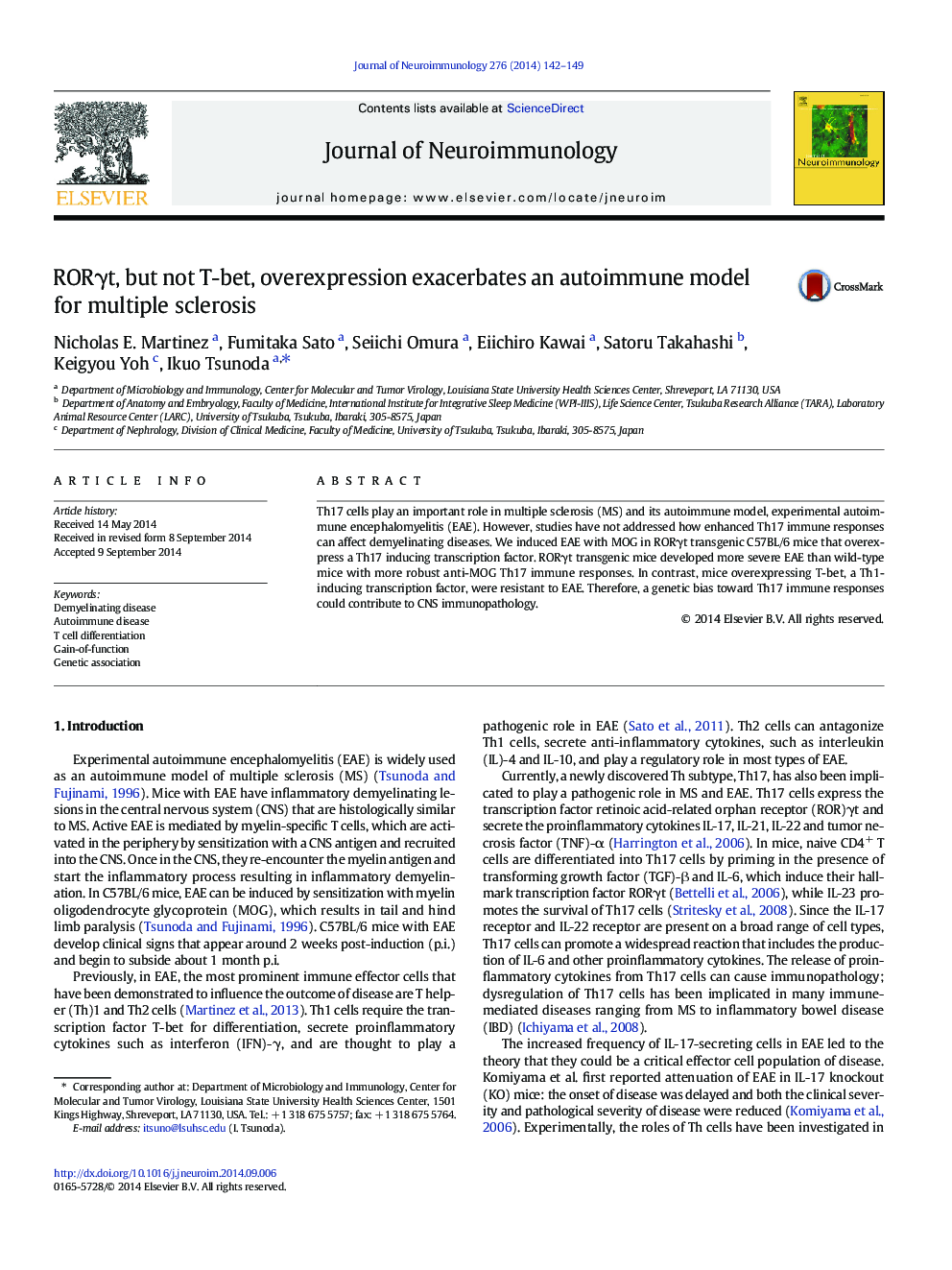| Article ID | Journal | Published Year | Pages | File Type |
|---|---|---|---|---|
| 3063982 | Journal of Neuroimmunology | 2014 | 8 Pages |
•RORγt Tg mice overexpressing RORγt favored Th17 immune responses.•RORγt Tg mice developed more severe EAE, clinically and histologically.•RORγt Tg mice had a more robust anti-myelin immune response.•A Th17 biased immune response exacerbated the severity of an autoimmune model for MS.•T-bet Tg mice did not develop EAE.
Th17 cells play an important role in multiple sclerosis (MS) and its autoimmune model, experimental autoimmune encephalomyelitis (EAE). However, studies have not addressed how enhanced Th17 immune responses can affect demyelinating diseases. We induced EAE with MOG in RORγt transgenic C57BL/6 mice that overexpress a Th17 inducing transcription factor. RORγt transgenic mice developed more severe EAE than wild-type mice with more robust anti-MOG Th17 immune responses. In contrast, mice overexpressing T-bet, a Th1-inducing transcription factor, were resistant to EAE. Therefore, a genetic bias toward Th17 immune responses could contribute to CNS immunopathology.
